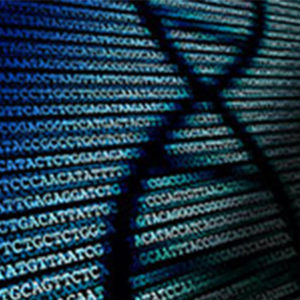NGS Analysis for Monogenic Disease in African Populations (Kigali, Rwanda)
22–23 September 2018
Kigali, Rwanda
Summary
In collaboration with the joint 11th Conference of the African Society of Human Genetics (AfSHG) and the 12th Meeting of the H3Africa Consortium, 19-21 September 2018 in Kigali, Rwanda, we are delighted to offer this free-to-attend, 2-day workshop on the application of next generation sequencing (NGS) technologies for analysing monogenic disease in African populations.
Use of NGS technologies encompassing gene panels, whole exome sequencing (WES) and whole genome sequencing (WGS) in human genomics are increasingly becoming accessible for research and clinical diagnostics in Africa. Africa-wide consortia such as the Human Heredity and Health in Africa (H3Africa) supported by the African Society of Human Genetics (AfSHG) and funding organisations including the National Institutes of Health (NIH) (USA) and Wellcome (UK) have supported skills development
and infrastructure building.
This workshop aims to provide an overview of NGS genomic study approaches and analysis pipelines for the discovery and validation of rare monogenic disease-causing variants, with a specific focus on special considerations for African families. Participants will be introduced to the key electronic resources that can be harnessed to assess the potential pathogenicity of variants. Case studies will be incorporated to demonstrate key steps in research and potential utility in diagnostics with a focus on monogenic diseases.
Target audience
The workshop is aimed at researchers and clinicians/healthcare professionals in the field of human genomics who use or plan to use NGS approaches in their research or clinical work.
Programme
The programme will include lectures, discussions and hands-on exercises* covering the following topics:
- Modes of inheritance
- African population reference datasets
- Experimental design for NGS studies in monogenic diseases
- Workflow QC
- Variant analysis pipeline
- Variant annotation
- Variant filtering
- Interpretation of genetic variants
- Ethical issues of incidental findings and variants of unknown significance
*Please note: Participants must bring a wireless-enabled laptop computer to participate in the hands-on exercises.
Learning outcomes
By the end of the workshop participants should be able to:
- Formulate appropriate NGS study designs for rare monogenic disorders
- Evaluate the content, data, annotations and use of databases and web-based genetic resources and tools
- Appreciate basic principles and concepts of analysis and interpretation of NGS data
- Be aware of appropriate methods, tools and resources in analysis and interpretation of NGS data with respect to rare monogenic diseases.
Instructors and speakers
Instructors
Michele Ramsay Sydney Brenner Institute for Molecular Bioscience,
University Of Witswatersrand, South Africa
Neil Hanchard Baylor College of Medicine, USA
Adebowale Adeyemo Center
for Research on Genomics and Global Health, USA
Emily Perry EMBL-EBI, UK
Jane Loveland EMBL-EBI, UK
Christian Gilisen Radboudumc, Netherlands
Elizabeth Radford University of Cambridge, UK
Jennifer Posey Baylor College of Medicine, USA
How to apply
Prerequisites
The workshop is open to researchers and clinicians/healthcare professionals based in Africa, with background knowledge in genetics and who aim to apply NGS analysis methods in their research or clinical work. The hands-on practical sessions will use web-based resources and participants will not require knowledge of UNIX or command-line applications. The workshop will be taught in English.
If you have any problems with the online application process, please contact us.
Please note: Applications must be supported by a recommendation from a scientific or clinical sponsor (e.g. supervisor, line manager, or head of department). A request for a supporting statement will be sent to your nominated sponsor automatically during the application process. Applicants must ensure that their sponsor provides this supporting statement by the application deadline.
Applications without a supporting statement cannot be considered.
Deadlines
Application Deadline: Closed
Cost
Cost
The course is subsidised by the Wellcome Genome Campus Advanced Courses and Scientific Conferences Programme and is free to attend for non-commercial applicants. Please contact us for the commercial fee.
Accommodation will be provided free of charge for participants not based in Kigali (up to a maximum of 3 nights: arriving Friday 21, departing Monday 24 September). Travel bursaries are not available for this course.
Please check the AfSHG Conference website for funding opportunities.

